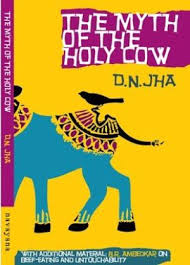Delivery Charge (Based on Location & Book Weight)
Inside Dhaka City: Starts from Tk. 70 (Based on book weight)
Outside Dhaka (Anywhere in Bangladesh): Starts from Tk. 150 (Weight-wise calculation applies)
International Delivery: Charges vary by country and book weight — will be informed after order confirmation.
3 Days Happy ReturnChange of mind is not applicable
Multiple Payment Methods
Credit/Debit Card, bKash, Rocket, Nagad, and Cash on Delivery also available.
In this book, historian Dwijendra Narayan Jha argues that the ‘holiness’ of the cow is a myth and its flesh played an important part in the cuisine of ancient India. Citing Hindu, Buddhist and Jaina religious scriptures, he underlines the fact that beef-eating was not Islam’s ‘baneful bequeathal’ to India. Nor can abstention from it be a mark of ‘Hindu’ identity, notwithstanding the averments of Hindutva forces who have tried to foster the false consciousness of the ‘otherness’ on the followers of Islam. The Navayana edition features an excerpt from B.R. Ambedkar’s 1948 Work on the connections between untouchability and beef-eating. Ambedkar marshals evidence to argue that in the Vedic period, ‘for the Brahmin every day was a beef-steak day.’.
In this book, historian Dwijendra Narayan Jha argues that the ‘holiness’ of the cow is a myth and its flesh played an important part in the cuisine of ancient India. Citing Hindu, Buddhist and Jaina religious scriptures, he underlines the fact that beef-eating was not Islam’s ‘baneful bequeathal’ to India. Nor can abstention from it be a mark of ‘Hindu’ identity, notwithstanding the averments of Hindutva forces who have tried to foster the false consciousness of the ‘otherness’ on the followers of Islam. The Navayana edition features an excerpt from B.R. Ambedkar’s 1948 Work on the connections between untouchability and beef-eating. Ambedkar marshals evidence to argue that in the Vedic period, ‘for the Brahmin every day was a beef-steak day.’.
No Specifications






























